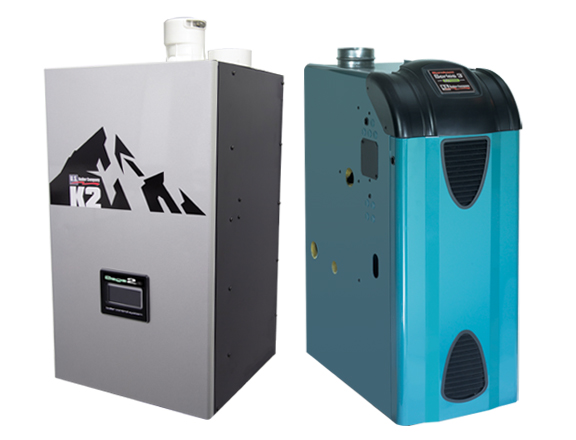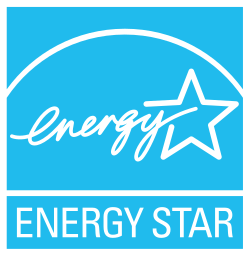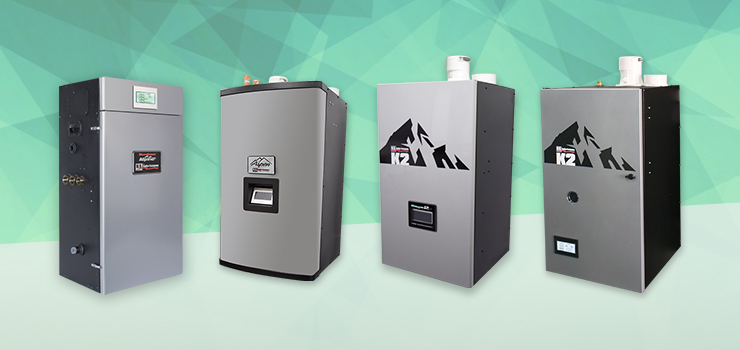As the heating season approaches, you may be faced with deciding to replace your boiler to ensure your family stays comfortable this winter. Choosing a new boiler for your home is an extremely important decision. During your online research, you may have discovered a variety of “high efficiency” gas boiler models. So, what exactly is a high efficiency gas boiler?
That’s a great question! A high efficiency, gas-fired boiler is one of the most economical and clean ways to heat your home, reduce your monthly heating bills, and lessen environmental impact. Let’s explore some common questions about high efficiency gas boilers.
What makes a gas boiler high efficiency?
To answer this question, we have to understand how a boiler operates. A boiler works by heating water, which is conducted through radiators, radiant floor systems or a coil. With a standard, conventional boiler, some of the energy that is used to heat the boiler, whether it is a fossil fuel or natural gas, gets lost in the combustion process. When fuel is burned in a boiler, it produces flue gas, similar to the exhaust from your car. This gas leaves the combustion chamber and enters the flue passages. The combustion chamber and flue passages (called the heat exchanger) are surrounded by water… the same water that is circulated throughout your home to deliver heat. By design, these flue passages harvest heat from the flue gas and transfer it to the water inside the heat exchanger. The more energy that the heat exchanger can harvest from the flue gas, the more value you get from every dollar you spend on fuel.
A high efficiency boiler is designed to trap the escaping heat and direct it back into heating the home through a process known as “condensing.” In fact, this is why high efficiency boilers may be referred to as a condensing boiler!
High efficiency condensing boilers produce heat by burning natural gas or propane fuel. The word “condensing” refers to the fact that these appliances are able to extract heat from the combustion process so efficiently that the flue gases leave the boiler at a much lower temperature than in a standard boiler. The temperature of these flue gases is low enough that they actually condense inside the heat exchanger. That’s a good thing!
High efficiency boilers vs standard, conventional boilers
The biggest difference between high efficiency boilers and conventional boilers is something called “stack temperature,” essentially the temperature of the flue gas as it leaves the boiler. The water vapor that is trapped in the flue gas will condense into water when it reaches a certain temperature (commonly known as the “dew point”). With a  conventional boiler’s high stack temperature, this process happens well outside the house, sometimes a number of feet above it, and the condensation simply evaporates in
conventional boiler’s high stack temperature, this process happens well outside the house, sometimes a number of feet above it, and the condensation simply evaporates in
the outside air. This is necessary because if the stack temperature was lower, the flue gas would start to condense inside the vent pipe and trickle back down inside the boiler which is very harmful for a conventional boiler.
A high efficiency boiler has a lower stack temperature because it is designed and built to handle the condensation of lower temperature operation with no negative effects on the boiler. In these boilers, the condensate is re-captured, collected, and directed out of the boiler by way of a purpose-built condensate drain.
Because a high efficiency boiler does not require higher temperatures to vent, it can do the same job of heating a home as a conventional boiler does, while using significantly less fuel to do so.
How much savings do high efficiency boilers provide?
Depending upon its age and type, a standard boiler will typically be 80 to 85% efficient. This means that roughly 80 or 85 cents of every dollar you spend on gas will go towards heating the home, and 15 to 20 cents of heat escapes through the chimney or vent pipe.
In comparison, a condensing boiler may provide up to 96% efficiency, which means that only 4 cents of heat escapes. That’s a big difference!
It may seem hard to believe, but upgrading from a typical 80% efficient boiler to any high efficiency boiler in U.S. Boiler Company’s extensive product line can provide a 15-20% savings in energy. What this means for you is that energy savings can be realized during the first year of operation, and every year thereafter!
 A recognized symbol of energy efficiency is the ENERGY STAR® label. For a boiler to qualify for ENERGY STAR®, the product must meet or exceed the EPA’s minimum efficiency ratings. In U.S. Boiler Company’s line of high efficiency products, the Alpine, Aspen, K2 and K2 Combi boilers are ENERGY STAR rated.
A recognized symbol of energy efficiency is the ENERGY STAR® label. For a boiler to qualify for ENERGY STAR®, the product must meet or exceed the EPA’s minimum efficiency ratings. In U.S. Boiler Company’s line of high efficiency products, the Alpine, Aspen, K2 and K2 Combi boilers are ENERGY STAR rated.
Plus, high efficiency condensing boilers are not just good for your wallet. They are also good for the environment. High efficiency boilers use less energy to heat your home, so they produce fewer emissions, which benefits everyone!
Additional benefits of high efficiency boilers
We’ve already discussed how condensing boilers provide energy savings, but as with all cutting-edge technology, there are additional benefits and things that the buyer should know.
First of all, condensing boilers provide the added benefit of installation flexibility. Since the flue gas is cooler than that produced by a conventional boiler, the unit can be vented through PVC or CPVC pipe, and in most cases, even with a flexible pipe. This makes selecting a location to install the boiler much easier than finding a spot for a conventional boiler. Also, because high efficiency boilers have a “power vent” feature (fan assisted), they can be vented through almost any outside wall in the home and do not require a chimney.
Additionally, high efficiency boilers are typically much smaller and lighter than conventional boilers, so they can often be hung on a wall, instead of being mounted on the floor.
Condensate, a byproduct of higher efficiency
As previously mentioned, condensate is created within the heat exchanger and flue of a condensing boiler. Draining this condensate is very easy but also very important.
The condensate drains to the bottom of the heat exchanger and runs out of the boiler through a condensate drain. Since this fluid is a byproduct of combustion, it is acidic, typically between 3.2 and 4.0 pH (which is significantly less caustic than lemon juice or soda). As a result, it enters a simple device called a “condensate neutralizer.”
The neutralizer contains alkaline material (usually some form of Calcite), which is an environmentally friendly, chalk-like material that neutralizes the condensate. It is then disposed of either down a drain or pumped out of the home.
Because this condensate is acidic, heat exchangers in a high efficiency boiler need to withstand a low pH. All of U.S. Boiler’s high efficiency heat exchangers are made of stainless steel for long service life and outstanding reliability.
Is a high efficiency gas boiler the best choice for my home?
If efficiency is high on your list of priorities, then you should seriously consider a high efficiency condensing boiler, like the Alpine, K2 or Aspen. If you’re looking for a budget-minded boiler that offers fantastic reliability and long service life, you may want to consider a unit like U.S. Boiler’s ES2, ESC, Series 3, Series 2 or Series X-2 cast iron boiler.
Regardless, there are many factors to consider when determining the best choice for your home. The heating system in a home not only includes the boiler, but also all of the pipes, valves, pumps, and heat distribution as well. Your professional heating contractor will be able to determine what heating equipment will be best suited for your home heating system. You can browse our site for a heating contractor in your area.
Typically, condensing boilers operate most efficiently in homes with low system temperatures, such as those with radiant floor systems or in homes with high water volume cast iron radiators. In these applications, condensing boilers do not use indoor air for combustion and require a means to vent the boiler directly to the outside (not chimney venting). In homes where it may be impractical to vent a boiler directly to outside air without using a chimney, a conventional cast iron gas boiler may be a more viable option. A consultation with a professional home heating contractor will provide the best answer.

